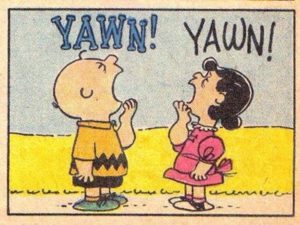When I started reviewing crime fiction and other genres for the Detroit Free Press back in the 90s, I made an odd discovery. Reviewers, friends, acquaintances would be raving about a book or an author. I’d get a review copy and think, “Huh? What am I missing?” I remember one book that was hailed across the country in almost ridiculous terms, with one major reviewer gushing that it wasn’t just a book, it was an experience.
Well, isn’t reading every book an experience of some kind?
The second part of this discovery was that when I’d be out on tour for one of my own books, when it came time for Q&A, eventually someone would ask about one of these books the whole world seemed to worship and adore. The questions always came a bit tentatively, as if it was heretical to even raise them. I would be honest but focus on something technical. For instance, with one wild best seller, I said I just didn’t believe the voice was the voice of a teenager.
I’ve been observing the love fest for Kate Atkinson for awhile. Friends have urged me to read Life After Life or Case Histories, and I just couldn’t get into them. Then a best friend sent me three of her books as holiday gifts. I picked Transcription because it was the shortest, and I was determined to finish it so we could discuss it. This is the story of a young woman, Juliet Armstrong, drawn into the fringes of England intelligence in 1940. Her job is typing up transcriptions of bugged conversations of British Nazi sympathizers. If it sounds dull, it is.
 Nothing dramatic happens until halfway, and even then, the drama is relative. Eventually something more exciting does take place, but as WW II books go, this is a sleeper. I have nothing against war novels that are literary fiction: One of my favorites is Helen Humphreys’ Coventry, which is poetic and intensely dramatic. But Transcription was annoying in a number of ways. Apparently shifting decades is one of Atkinson’s “things.” I found it frustrating. A straightforward narrative would have ramped up the tension.
Nothing dramatic happens until halfway, and even then, the drama is relative. Eventually something more exciting does take place, but as WW II books go, this is a sleeper. I have nothing against war novels that are literary fiction: One of my favorites is Helen Humphreys’ Coventry, which is poetic and intensely dramatic. But Transcription was annoying in a number of ways. Apparently shifting decades is one of Atkinson’s “things.” I found it frustrating. A straightforward narrative would have ramped up the tension.
But the narrative itself was more awkward and off-putting than the structure. Juliet is given to incessant thinking about her thinking and to making silly puns. When told to keep an ear out, she notes that she has two. Hah. Hah. The trivial focus on her mental commentary is relentless and her observations are sometimes ridiculously banal: “But then, what constituted real? Wasn’t everything, even this life itself, just a game of deception?”
There’s a plot twist at the end that doesn’t quite relieve the boredom of the previous 250+ pages. There’s also so much tea drinking that after awhile you begin to wonder if the book is meant to be some kind of spoof of British fiction.
After finishing, I found that a host of highly disappointed readers on Amazon found similar problems with the book. Me, I read it out of loyalty to my friend, and finally out of morbid curiosity: could it really go on like this page after page? It did.
With twenty years of university teaching behind him, Lev Raphael offers a range of creative writing workshops online at writewithoutborders.com. “Studying creative writing with Lev Raphael is like seeing ‘Blade Runner’ for the first time: simply incredible.”—Kyle Roberts, Michigan
